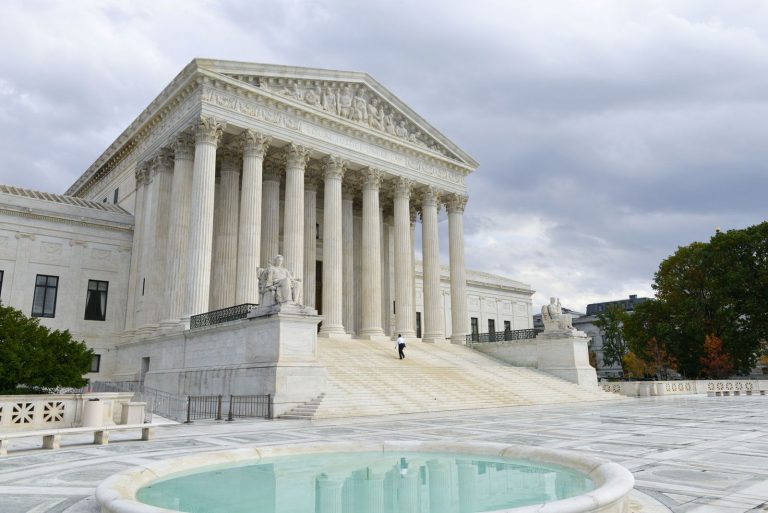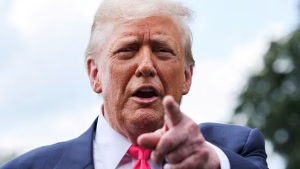NOTE: VIDEO AT THE END OF THE ARTICLE.
In a major development shaking up federal language-access policies, U.S. Attorney General Pam Bondi has released a sweeping set of guidelines aimed at implementing President Donald Trump’s executive order designating English as the official language of the United States. The directive, hailed by the administration as a cornerstone of national cohesion, signals a major shift in how the federal government addresses multilingual services.
President Trump signed Executive Order 14224 earlier this year, declaring English the official language for all federal government communications and services. The move repealed President Bill Clinton’s 2000 executive order requiring agencies to offer multilingual support for individuals with limited English proficiency (LEP). Now, Attorney General Bondi is pushing forward with plans to overhaul decades of policy and practice.
In a press release issued on Monday, Bondi described the move as “transformative,” stating: “As President Trump has made clear, English is the official language of the United States. The Department of Justice will lead the effort to codify the President’s Executive Order and eliminate wasteful virtue-signaling policies across government agencies to promote assimilation over division.”
The new DOJ directive lays out a detailed roadmap for federal departments and agencies. It mandates a comprehensive audit of all non-English language services, requiring agencies to assess whether such services are necessary and cost-effective. Any offerings deemed “non-essential” are to be phased out. The cost savings from these cuts will be reallocated to English-language instruction programs and broader national assimilation efforts.
Significantly, the DOJ has also announced a temporary suspension of LEP.gov, the federal portal dedicated to resources for individuals with limited English proficiency. All public-facing language-access materials—including brochures, videos, and online tutorials—are now paused pending internal review. Agencies must submit new plans within 180 days outlining their revised language-access strategies and are also instructed to seek public feedback.
The DOJ’s memo represents more than just a budgetary or bureaucratic change—it marks a shift in legal interpretation. The Department has officially abandoned the “disparate-impact” standard that previously guided language access enforcement under Title VI of the Civil Rights Act. Under the old standard, agencies could be penalized for policies that unintentionally disadvantaged non-English speakers. The Bondi-led DOJ now argues that unless there is clear evidence of intent to discriminate based on national origin, neutral policies favoring English do not violate civil rights law.
Civil rights organizations and immigrant advocacy groups are sounding the alarm. Critics argue the move could disenfranchise millions of Americans who rely on language assistance to access critical services such as healthcare, education, and legal support. “This is a step backward,” said one immigration policy analyst. “It threatens to isolate vulnerable communities and weaken public trust in government institutions.”
Despite the backlash, Bondi and the Trump administration appear determined to carry out what they view as a unifying reform. “This isn’t about exclusion,” Bondi insisted. “It’s about national identity and efficient governance.”
As the 180-day review period begins, all eyes will be on how federal agencies comply—and how affected communities respond. The battle over language in America has entered a new, high-stakes phase.
PLAY:

Sarah Mitchell is a bestselling novelist recognized for her insightful and emotionally resonant stories that explore the complexities of human relationships. Originally from Denver, Colorado, Sarah grew up in a family of teachers who nurtured her curiosity and love for storytelling. She studied psychology at Stanford University, where she became fascinated by the intricacies of human behavior—an interest that would later shape her writing career. Sarah’s novels are praised for their nuanced characters, intricate plots, and ability to capture the subtle tensions that define love, friendship, and family ties. Her breakthrough novel, The Spaces Between Us, became an instant bestseller, lauded for its honest portrayal of strained family relationships and the fragile bonds that hold people together. Since then, she has published several works that continue to captivate audiences around the world. Outside of her writing career, Sarah is passionate about mental health advocacy and often partners with organizations to promote awareness and support for those struggling with emotional well-being. Her personal life is quieter—she enjoys hiking in the Colorado mountains, practicing yoga, and spending time with close friends. With each new book, Sarah Mitchell cements her reputation as a writer who illuminates the beauty and struggles of human connection.








